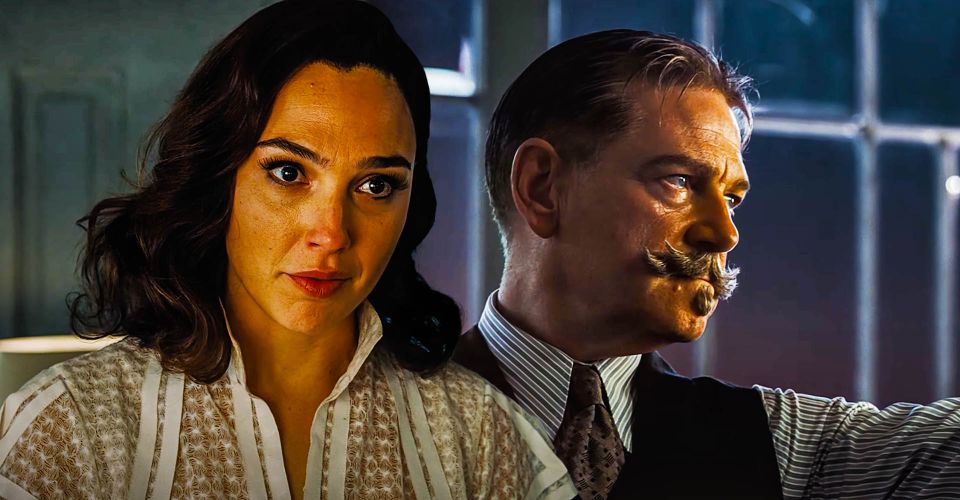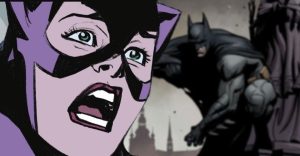Death On The Nile Killer Identity & Motives Explained

Warning: This post contains spoilers for Death on the Nile.
Death on the Nile ending explained. Based on Agatha Christie’s novel of the same name, Kenneth Branagh returned to direct the second film starring him as renowned detective Hercule Poirot. Leading an ensemble cast, the murder mystery included quite a few twists and turns before the sleuth figured out the killer’s identity.
Set in 1937, Death on the Nile follows Hercule Poirot on holiday in Egypt. After reconnecting with old friend Bouc (Tom Bateman), he’s invited to attend a Nile cruise to celebrate the marriage of Simon Doyle (Armie Hammer) and Linnet Ridegway, an heiress. After Linnet is killed and her necklace stolen, Poirot sets out to find exactly who’s responsible for her death and the person’s motivations.
Like the great detective he is, Poirot does solve the murder mystery in the end, along with a few other intriguing discoveries about the passengers of the S.S. Karnak. Here is the ending explained, the killer’s identity revealed, and biggest changes from the book.
The Killer’s Identity Revealed (& Why There Were 2)

It took Poirot a bit to get to the bottom of the mystery because he was busy looking into Rosalie’s history for Euphemia. However, the sleuthing detective ultimately discovered it was Simon Doyle, Linnet’s husband, who killed her. He wanted her money more than anything, which is why he romanced her, publicly left Jacqueline, and married her so quickly. Working for Linnet as a land agent wasn’t enough — Simon wanted a lot more than that and he was willing to become a killer to get it. He was seen by Louise, which is why she was next on the list of victims. However, Simon was not working alone at all.
The reason there were two killers was because Jacqueline couldn’t resist helping Simon; she would do anything for him, even if that meant plotting to kill her friend. While Simon killed Linnet, it was Jacqueline who murdered both Louise and Bouc, the former because she’d seen Simon and the latter because Bouc had seen Jacqueline kill Louise. Simon had to maintain his innocence and, since he was present during Poirot questioning others, he couldn’t do the killing or give himself away. Simon and Jacqueline planned everything from the start and it’s possible they might have gotten away with it, too, had Poirot not been around to dig up the truth.
Why Jacqueline Showed Poirot Her Gun Before Linnet’s Death

Interestingly, Jacqueline revealed to Poirot that she had a gun, the very same one that Simon used to kill Linnet. At that point in Death on the Nile, Jacqueline already looked guilty and Linnet was suspicious that the woman would, in fact, kill her because Simon left her to marry Linnet. So why show Poirot the gun at all? Following Simon and Jacqueline like a stalker should have been enough, right? While Jacqueline harbors as much of the blame for plotting to kill, it’s possible she showed Poirot the gun because a part of her felt guilty for trying to murder Linnet. After all, she and Linnet were friends, with the heiress making it clear Jacqueline was one of the only people who never cared about her money. Maybe there was a part of her that wanted Poirot to see the gun in the hopes he would try to take it away from her, preventing the series of events that spiraled thereafter.
Why Bouc, Andrew & Euphemia Are Also Guilty

Andrew may not have been successful, but he did attempt to kill Linnet and Simon while at the temples of Abu Simbel. He also tried to get Linnet to sign papers that would keep him in charge of her estate for longer, which means he would have continued getting her money, at a time when she was rattled and unfocused on what was written. The only reason Poirot lets Andrew go is on the promise that he will make things right with Linnet’s accounts.
Poirot would have also let Bouc go for stealing Linnet’s necklace in Death on the Nile, but he died before that could happen. Bouc was so desperate to start his new life with Rosalie that he thought of their life together first instead of revealing Linnet had been murdered. Stealing the necklace put him in danger, too. If he hadn’t been trying to hide it or put it back, Bouc probably wouldn’t have seen Simon speaking with Louise at all. Taking the necklace complicated matters more than necessary, resulting in more deaths. However, Bouc may not have stolen the necklace at all if Euphemia had simply accepted her son’s relationship with Rosalie. Her hiring of Poirot complicated things and inadvertently set Bouc on his path.
Why Poirot Has A Mustache (& Why He Finally Shaves It Off)

A big part of what makes Poirot famous is his lengthy mustache, curved at the ends and groomed to precision. Death on the Nile reveals the reason behind his mustache is actually an idea from his late wife, who suggested he grow facial hair to cover up his war scars. He’s worn his mustache ever since. By the end of the film, however, Poirot has shaved off his mustache entirely. It may seem initially like he’s done it to impress Salome Otterbourne (Sophie Okonedo), but it also goes a lot deeper. Poirot was hiding behind his work and his ego.
Bouc’s death made him realize he lost the only friend he really had — one who was willing to fight for love — while Poirot kept people at arm’s length. After Rosalie, Salome’s niece, openly read right through him, Poirot knew she was right; he did hide. His mustache is a big part of that, shielding him from questions about his past despite the many comments he gets about it. Removing it showed that he was willing to live his life more openly moving forward. Going to see Salome without the mask, in an environment where he isn’t working, speaks to the idea that he wants to live more fully and shaving off his mustache is a start.
Biggest Changes From Agatha Christie’s Book

Film adaptations of novels are never going to be exactly the same as their source material and Death on the Nile is an example of that. While the core of the murder mystery remains the same, there are plenty of changes made from the original work. The movie brings back Bouc from Murder on the Orient Express, but he isn’t in Agatha Christie’s original novel. Bouc seems to have replaced Tim Allerton as Rosalie’s love interest in the film. In the novel, Rosalie is also Salome Otterbourne’s daughter and not her niece; Salome is also not a jazz singer, but a romance novelist.
Marie Van Schuyler in Branagh’s adaptation is Linnet’s grandmother, but she’s Tim’s mother in the book. What’s more, there are several characters from Christie’s novel that don’t appear in the film at all, including Cornelia Robson, Marie’s cousin, communist Mr. Ferguson, archeologist Guido Richetti, who stole Linnet’s necklace, and Jim Fanthorp. Death on the Nile includes physician Linus Windlesham, but he’s a replacement for Dr. Bessner. Colonel Race is also omitted from the 2022 adaptation. By removing certain characters, others in the film were shifted to take their roles, further engaging with the murder plot that still involves Simon and Jacqueline’s scheming to get Linnet’s money.
Death Of The Nile Real Meaning Explained

Death on the Nile may be a murder mystery, but its core is about the hopelessly in love. Everyone in the film is fueled by their passionate love for someone else. Hiding behind certain things — care, money, work — is also a major theme in the film. Ultimately, every character was masked. On the outside, the wealth of Linnet shadowed much of the rocky relationships brimming beneath the surface. Love, in many ways, showcased the ugliness behind all of their behavior; it’s also what drove them to extremes. Love built them up, but it also made them monsters. Ultimately, those who had their heart in the right place were fighting for something beyond greed in the murder mystery. Others, like Simon, were really only in it for the money. Love, it seems, makes people do unfortunate, irrational things and Death on the Nile is proof of that. But the film’s message is ultimately that people, no matter what, should try to love regardless.
- Death on the Nile (2022)Release date: Feb 11, 2022
About The Author


















